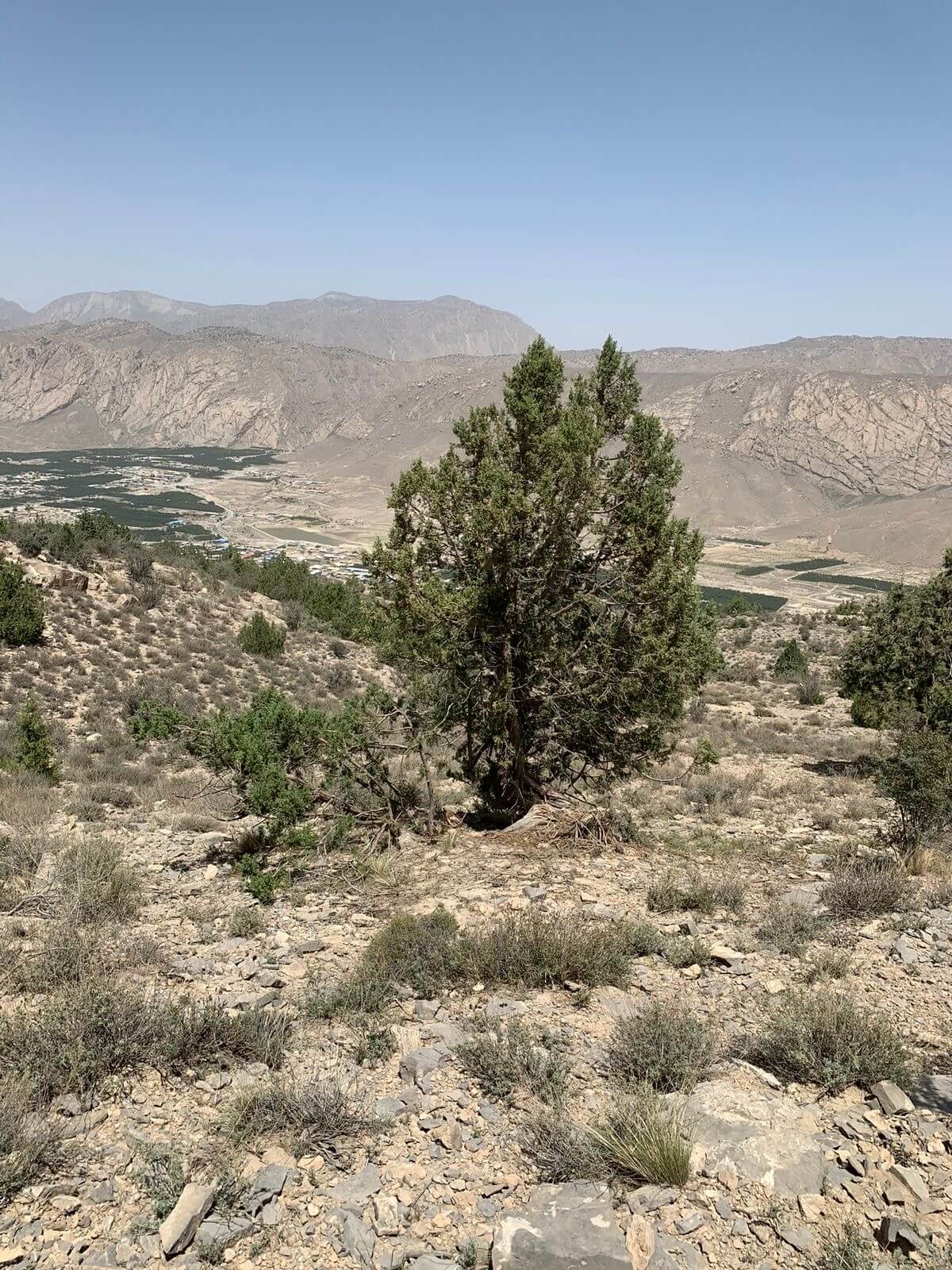By Fareed Ullah Khan
Nestled in the northeast of Balochistan, the scenic hill station of Ziarat — once known as Ghauski (meaning “cold place” in Pashto) — stands as one of Pakistan’s most breathtaking natural treasures. Surrounded by snow-capped peaks and ancient juniper trees, Ziarat’s crisp air and cool climate make it a haven for tourists escaping the country’s sweltering summer heat.
But behind this beauty lies a crisis. The Ziarat Juniper Forest, once celebrated as the pride of Balochistan, is now on the brink of collapse — the result of climate change, deforestation, and government negligence.
Asia’s Largest Juniper Forest — A Natural Wonder in Peril
The Ziarat Juniper Forest is no ordinary woodland. It is Asia’s largest juniper forest and the second largest in the world, home to trees that are thousands of years old. Locally known as Sanober, these trees grow incredibly slowly — just one inch every two years. Some are estimated to be over 2,000 years old, making this forest a living natural museum and a vital part of Pakistan’s ecological heritage.
The junipers are not just trees — they are natural climate regulators, carbon sinks, and water cycle stabilizers. Yet, their survival is now threatened by the very communities who rely on them for survival.
The Local Dilemma: “We Cut Trees Because We Have No Gas”
Speaking to a local resident revealed the heartbreaking reality behind Ziarat’s deforestation.
“We’re not destroying the forest out of greed,” he said. “We have no choice. The government claims we have gas connections, but there’s no gas in the pipelines. It only flows when VIPs visit Ziarat — then it stops again.”
During the harsh winters, when temperatures drop below freezing, residents have no alternative but to cut juniper trees for firewood. Locals estimate that 600 to 1,000 juniper trees are cut down daily — a devastating rate given their centuries-long growth cycle.
Climate Consequences: Disappearing Snow and Rain
The impact of this rapid deforestation is already visible. Over the past five years, rainfall and snowfall in Ziarat have drastically declined. According to recent reports, rainfall in Balochistan during April and May has dropped by nearly 57% since 2025.
Experts warn that the juniper forest plays a key role in regulating rainfall and temperature in the wider region — including Quetta, Pishin, and Kalat. As the forest disappears, rising temperatures, soil erosion, and water shortages threaten both human life and biodiversity.
Government Silence and Weak Enforcement
When asked about the crisis, PS Abrar, Personal Secretary at the Forest Department, admitted:
“No one has permission to cut these trees under forest law. If it’s happening, then it’s a failure of our forest officers and local administration.”
Similarly, Ibrahim Baloch, Director General of Climate Change in Balochistan, acknowledged:
“Deforestation is illegal. If one tree is cut, a thousand should be planted. Our department focuses on awareness, while the Forest Department handles enforcement.”
However, when asked whether awareness campaigns were conducted in Ziarat, he admitted none had taken place there yet — only in Quetta and other districts.
Repeated attempts to reach the Sui Southern Gas Company (SSGC) for a statement were unsuccessful. The silence reflects a broader pattern of institutional neglect and lack of coordination.
Ecological Importance: More Than Just Trees
The Ziarat Juniper Forest sustains a fragile ecosystem — home to diverse wildlife and bird species that depend on these trees for shelter and food. The forest also prevents soil erosion, stores carbon, and regulates the local water cycle.
For the people of Ziarat, the junipers represent heritage, resilience, and identity. One elderly resident summed it up poignantly:
“If these trees disappear, Ziarat will lose its soul.”
Government Neglect and the Way Forward
Environmental protection has rarely been a national priority in Pakistan. In the latest provincial budget, only PKR 500 million (50 crore rupees) was allocated for climate change — an insignificant amount compared to the scale of the crisis.
Experts emphasize immediate government intervention as essential to save the Ziarat Juniper Forest:
- Ensure consistent gas supply to mountainous districts to reduce dependence on firewood.
- Strengthen forest law enforcement and penalize illegal logging.
- Launch awareness and reforestation campaigns involving local communities.
- Promote eco-tourism to generate sustainable livelihoods that do not harm the environment.
A Call to Action: Saving Ziarat’s Living Heritage
The Ziarat Juniper Forest is not just a local attraction — it is a global ecological asset. Its destruction would not only devastate biodiversity but also worsen Pakistan’s climate vulnerability.
The government must understand that protecting forests is protecting life — the economy, tourism, and the future stability of Balochistan’s environment all depend on it. Time is running out. Once these ancient trees are gone, they will never return.






